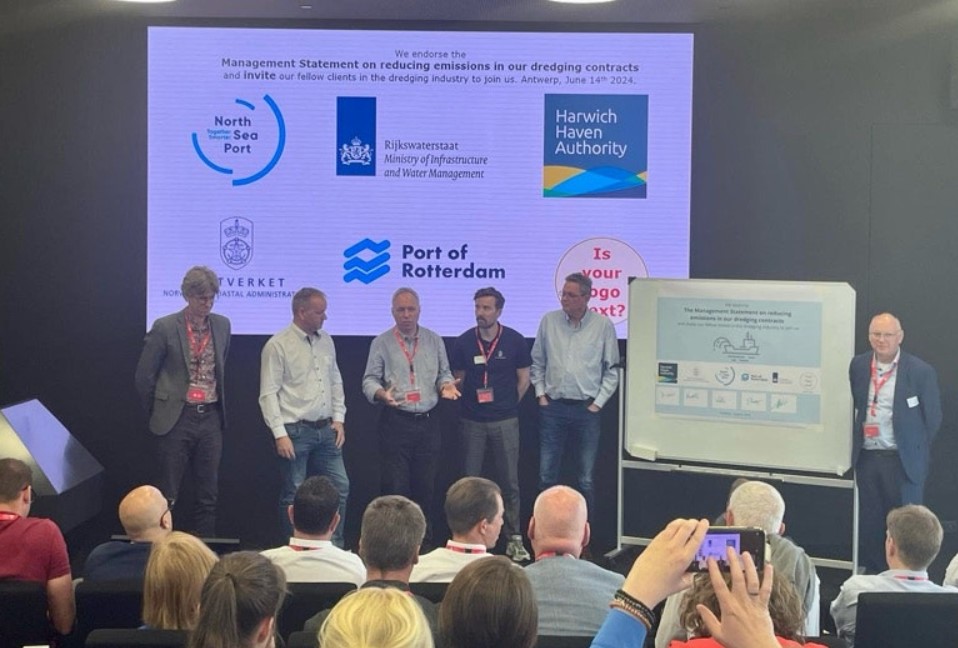Initiative to Reduce Emissions in Dredging Activities
Harwich Haven Authority, North Sea Port, Port of Rotterdam Authority, the Norwegian Coastal Administration (Kystverket), and Rijkswaterstaat (Netherlands) have launched a joint initiative to dramatically reduce emissions in dredging operations, aiming for climate neutrality in the long run.
Primary Strategies for Emission Reduction
The initiative focuses on two primary strategies: utilizing cleaner engines and adopting renewable energy sources. These measures are designed to significantly cut down emissions produced by dredging activities, contributing to a more sustainable environment.
Implementing Minimum Emission Standards
According to an official statement, the project will begin by implementing minimum emission standards for dredging vessels. These standards will be gradually tightened over time to ensure continuous improvement in emission reductions.
The Importance of Collaboration in Reducing Emissions
Addressing Uncertainty and Inefficiency
“Individual efforts to reduce emissions can cause uncertainty and inefficiency among contractors,” said Bert Kassies, Portfolio Manager for Seagoing Projects at Rijkswaterstaat. “By working together, we can set a clear direction and ensure a competitive but fair market environment. This initiative is a logical advancement for the industry. We encourage others to join us in this vital endeavor.”
Commitment to Net-Zero Emissions
“Reducing our environmental impact and achieving net-zero emissions are core to our business goals,” added Sarah West, CEO of Harwich Haven Authority. “We believe that collaboration and partnership are the most effective routes to these objectives.”
Benefits of International Cooperation
Aligning Efforts and Sharing Data
The initiative highlights the importance of cooperation in an international market, which features diverse laws and regulations. Aligning efforts and sharing data and procurement tools could benefit both clients and contractors, the authorities stated.
Enhancing Market Competitiveness
By collaborating on emission reduction strategies, the participating ports and authorities aim to create a level playing field for all stakeholders. This approach not only enhances market competitiveness but also promotes the adoption of sustainable practices across the dredging industry.
Long-Term Goals and Vision
Achieving Climate Neutrality
The long-term goal of this collaboration is to achieve climate neutrality in dredging operations. This ambitious target requires continuous innovation and the adoption of best practices in emission reduction. By setting incremental goals and working together, the authorities believe that significant progress can be made towards a more sustainable future.
Invitation to Join the Effort
The participating authorities invite other ports and dredging companies to join this initiative. By expanding the collaboration, the impact on emission reductions can be amplified, driving the entire industry towards a greener future.
Conclusion
The joint initiative by Harwich Haven Authority, North Sea Port, Port of Rotterdam Authority, Kystverket, and Rijkswaterstaat represents a significant step forward in the quest to reduce emissions in dredging activities. Through the implementation of cleaner engines and renewable energy sources, and by setting stringent emission standards, these authorities are leading the way towards a climate-neutral dredging industry. Collaboration and international cooperation are key to achieving these goals, ensuring a sustainable and competitive market for all involved.
By optimizing this article with relevant keywords and providing structured subheadings, it is designed to enhance SEO performance while delivering comprehensive information on the initiative to reduce emissions in the dredging industry.
